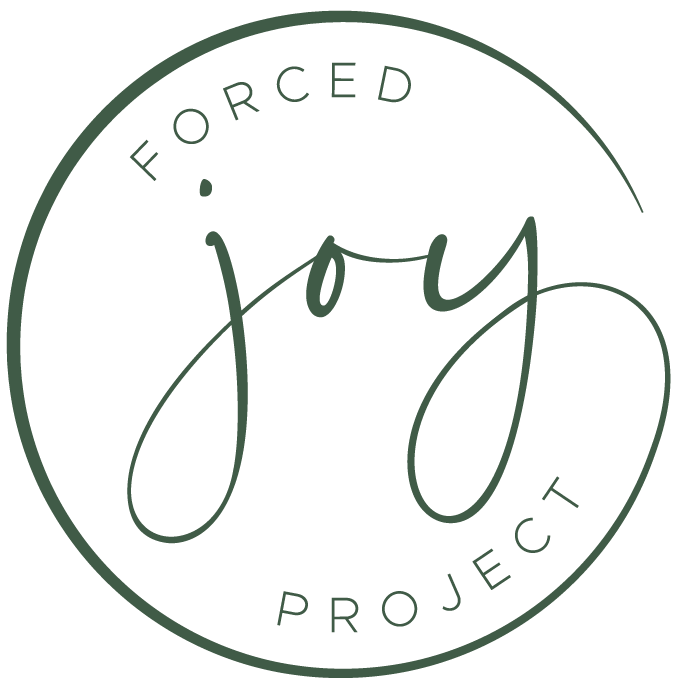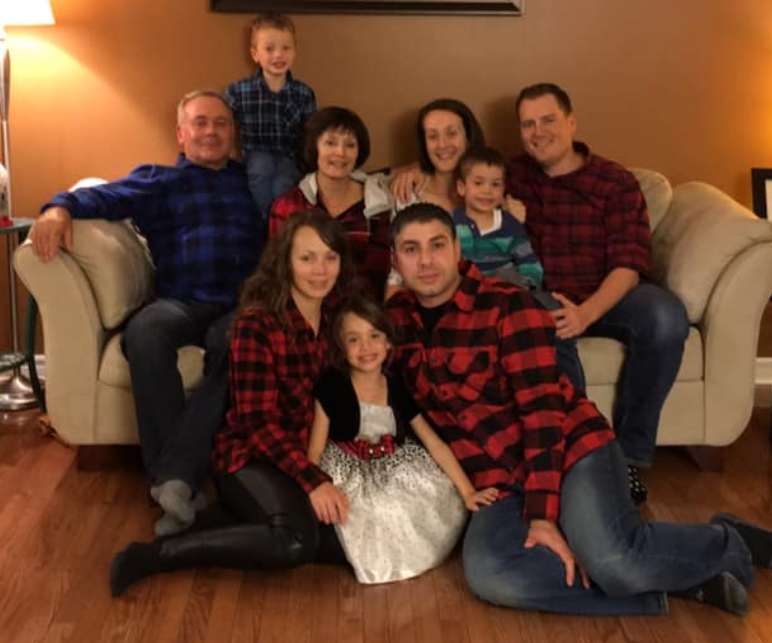Danielle Gelineau
Loss of fiancé, Brian, from cardiac arrest
Hi Danielle! Tell us, what’s your story?
I grew up in a small town in Northern Ontario (Canada). I did my undergrad at the University of Ottawa and finished a graduate certificate at Algonquin College, which is where I met Brian. We were friends for a few years before we started dating. We eventually moved to Toronto for job opportunities which is where I live now, and I work for Queen’s University in Administration.
I’d like to think that I am pretty active (or at least, I was in my previous life before grief). I enjoy cycling, playing sports, and walking. I love cooking and sharing meals with others. We used to love having people over for dinner and trying new recipes. Brian is the more extroverted of the two of us, so he was such a great host. During the pandemic, we also obviously jumped on the bandwagon and started making sourdough bread. My brother-in-law Jason first got me into sourdough, and I’ve been trying to convince everyone I know to give it a try (with varying degrees of success).
What was life like before the loss of your fiancé, Brian?
Ah yes, the beautiful “before” days ❤.
Our lives were simple and boring if I’m being honest. But boring in a good way. We would spend our days getting to know our neighbourhood (we had moved at the end of 2019 and didn’t get to see much before the lockdowns in Toronto). We’d check out local breweries, distilleries, restaurants, and coffee shops. We’d walk around our neighbourhood with our dog Fig. We’d spend time with friends, visit with Brian’s family, rent a cabin in the middle of nowhere, ride our bikes, take a day trip to go on a hike, watch hours of Netflix, etc. Pretty simple stuff but it’s what we loved to do.
The weekend before Brian died was just a perfect weekend. On Friday night, we went over to my sister-in-law, Mel (Brian’s sister) and brother-in-law, Andrew’s place for dinner. It was a beautiful September evening so we ate outside. On Saturday, we celebrated Brian’s birthday with some of our closest friends (Aimee, Phil, and Julia) by visiting a gin distillery and then having a beautiful dinner on a patio. On Sunday, Brian and I had a typical lazy Sunday morning sipping coffee and snuggling. It’s wild how much I remember of that weekend, down to some of the most specific details. I think I hold onto those moments so fiercely because they were perfect in so many ways, but we didn’t know at the time how much weight they had.
“Grief is never-ending and is not a linear process. I will carry this grief for the rest of my life, and frankly, I wouldn’t want it any other way. It’s proof that we love each other so fiercely and lived a beautiful life. Grief is love. ”
You shared with me that Brian died unexpectedly. Can you share what happened?
Brian suffered cardiac arrest while playing soccer on Sunday afternoon. He collapsed within the first 15 minutes of the game. Much of the moments after he collapsed are still a blur, but there are some that I cannot erase, even if I wanted to. I still live with that trauma and anxiety of witnessing Brian die while I stood there helplessly, and it’s something that I will face every day for the rest of my life.
We later learned that Brian was born with a rare genetic condition (that we were not aware of) which causes weaknesses in his heart tissue and resulted in Dilated Cardiomyopathy (enlarged heart). Brian’s heart lost its ability to pump efficiently and went into cardiac failure. There are usually no symptoms/warning signs of this condition; in most cases, the cardiac event is the first symptom.
And what was life like in the immediate weeks after the death of Brian? How did you cope?
I know it’s probably been said before by so many, but it truly was a blur. There are so many things you would never think you’d have to do or talk about. You don’t have the energy or the desire to do any of it, but you don’t really have a choice. What kind of casket would Brian want? What should his obituary say? What kind of ceremony do we think he would like? How do I tell his best friend that he died? Do I just pick up the phone and blurt it out? What’s Brian’s boss’ name and how do I tell her? Who do we invite to the funeral? What do I say for the eulogy? The coroner wants to talk to us. How do I tell my boss? How much time off can I take? I need to make a doctor’s appointment. So many horrendous and difficult conversations and thoughts running through your head. I felt like there was so much to do and I was just so angry that I had to do any of it. And the person that I wanted to complain to about all of this garbage was not here.
What was a specific low point or struggle you experienced?
I remember when people started making their way into town for Brian’s funeral, I was so blown away by how many people showed up. But it was a double-edged sword. Some of these friends and family, I hadn’t seen in so long (because, life) and all I wanted to do was spend time with them and be with them, but I just couldn’t. I wanted to have a normal conversation (or really, any conversation) with them, but I couldn’t. My brain was just not able to process anything other than this tragedy, and even though I was physically in the room with everyone, I was not there. I also knew that Brian would have loved to spend time with everyone and it just crushed me that he wasn’t there. It’s that moment when you realize it’s literally all your favourite people in a room but (a) someone is missing and (b) nobody really wants to be there in the first place. And who knows how long it will be before I see some of those people again.
I also really struggled with the world just carrying on as though nothing had changed, but my world had ended. I found it very difficult to talk about anything other than my grief or Brian for MONTHS (in fact, it’s still a struggle and I am 6 months out). It really hurt that life was just carrying on, and people were talking about the weather, work, family, friends and here I was, living a daily nightmare.
How did you manage to find joy in those low moments?
I cried my f*cking eyes out with people who were going through the same. We combed through hundreds of photos and videos through blurry eyes and talked about each captured moment. We talked about Brian. We wrote down memories. We shared stories of big life moments, his mannerism, his annoying habits, his laugh, his smile, his sayings. We talked openly and brutally honestly about our grief. We swore, drank wine, cried, wondered how we were going to make it through another day, and cried some more. It was the only thing my mind wanted to do was live in this grief, and spend time with those who were willing to do the same.
What do you want others to know about grief?
It is a thousand times worse than you think. There is no cure and it is not a problem to be solved. I think as a society, we are fixers. Everything has a solution. But this is one thing that just doesn’t have an answer. I know it’s tempting to want to offer advice, offer solutions, talk about light-hearted topics, distract my brain from my grief, cheer me up, etc. but it’s just not possible. And I know, it feels helpless to feel like there is nothing you can ‘do’ to help, but trust me, there isn’t.
I am also learning that grief is never-ending and is not a linear process. I will carry this grief for the rest of my life, and frankly, I wouldn’t want it any other way. It’s proof that we love each other so fiercely and lived a beautiful life. Grief is love.
How can a person best be there to support a loved one who is grieving?
Sit with that person and witness their grief. Stare into their eyes, hold their hand, and tell them that this is horrible. Skip the platitudes, offerings of silver lining, statements about the griever being “so strong/brave” (we don’t have a choice). Sit quietly and take their lead on talking. It’s ok to be awkward – it’s going to be. You don’t need to be “strong” and hide your emotions. Share your grief, show your empathy. Drop off food, toiletries, run a specific errand. Don’t send flowers – I don’t want to have something else to take care of and watch die. Do not text “If there is anything I can do, let me know”. Be specific in what you will offer. Do this at the 1-month, 6-month, 8-month mark, and beyond. Start every text with “you don’t need to respond but…”. Continue to reach out, especially after the early days. In the months to come, invite the griever places (continue to invite them even after the 10th time of them saying no), stop in to drop off a meal. Know that your relationship will be one-sided for months to come, but please don’t take it personally. Continue reaching out, DO NOT GIVE UP ON US even if we don’t respond. It’s incredibly isolating and lonely.
Talk about their person. Share a favourite memory, share how they made you feel, share a time that they made you laugh, etc. If you didn’t know their person, ask about them. Ask about their relationship. Say their name. Bring them up in conversation. I can assure you that the grieving person is thinking about them constantly.
What would you tell others who are going through something similar?
I’m really sorry that you have to belong to this shitty club. I wish you weren’t here. Let people show up and support you however that looks. Some people you might not have ever thought of might surprise you and be a pillar in your grief. Let them play that role. Give yourself grace and compassion. Spend time with people who you feel comfortable sharing your thoughts and fears with, who will let you fall apart and sit beside you while you do it. Whatever you are thinking, or feeling, someone has been there before. Seek these people out, as they will validate and share your experience. You are not alone.
If you could go back and spend one more day with Brian, what would you do?
Ah, what a great question. You know, I feel like we lived great lives. We had the privilege to travel to incredible places, go on big adventures together, experience huge moments together. But what I would want to do is just sit and stare into his eyes, tell him I love him, and just talk. It’s those simple mundane moments in the day that you don’t think mean much, that I wish I could have again. I want my person back. The person that I would complain to about those annoying daily things, ask for advice, share a meal with, and just “be”.
Any resources that were helpful for you that others might be able to utilize?
I slowly found a community on Instagram through people who write about their personal grief experience. It was nice to read others’ words and felt like I could have written them myself. It helped me feel validated and that the wild thoughts and things that I was experiencing were not ‘unusual’.






